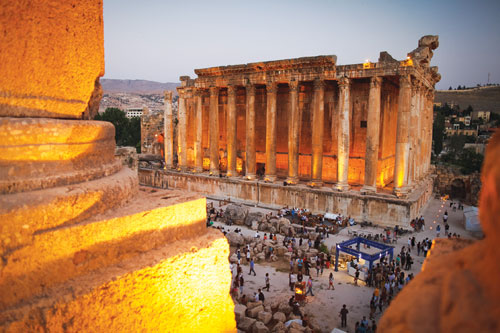
While Baalbeck's ruins will still light up this summer, fewer tickets sales could hinder its ability to fund the festival next year
Nabila Rahhal
Nabila is Executive's hospitality, tourism and retail editor. She also covers other topics she's interested in such as education and mental health. Prior to joining Executive, she worked as a teacher for eight years in Beirut. Nabila holds a Masters in Educational Psychology from the American University of Beirut. Send mail
